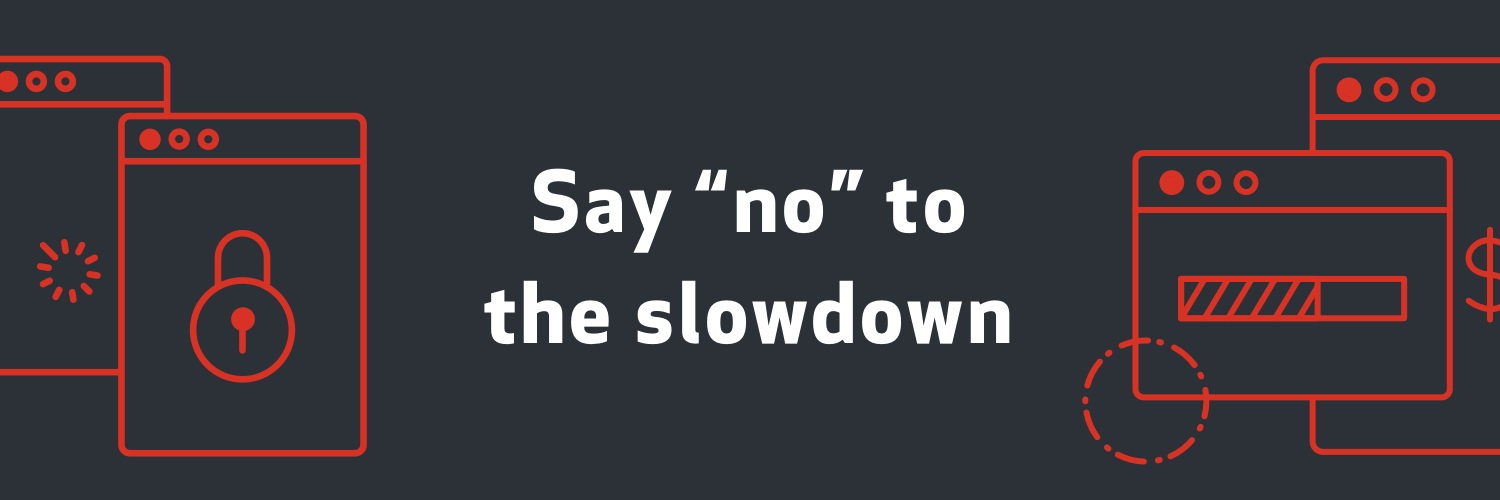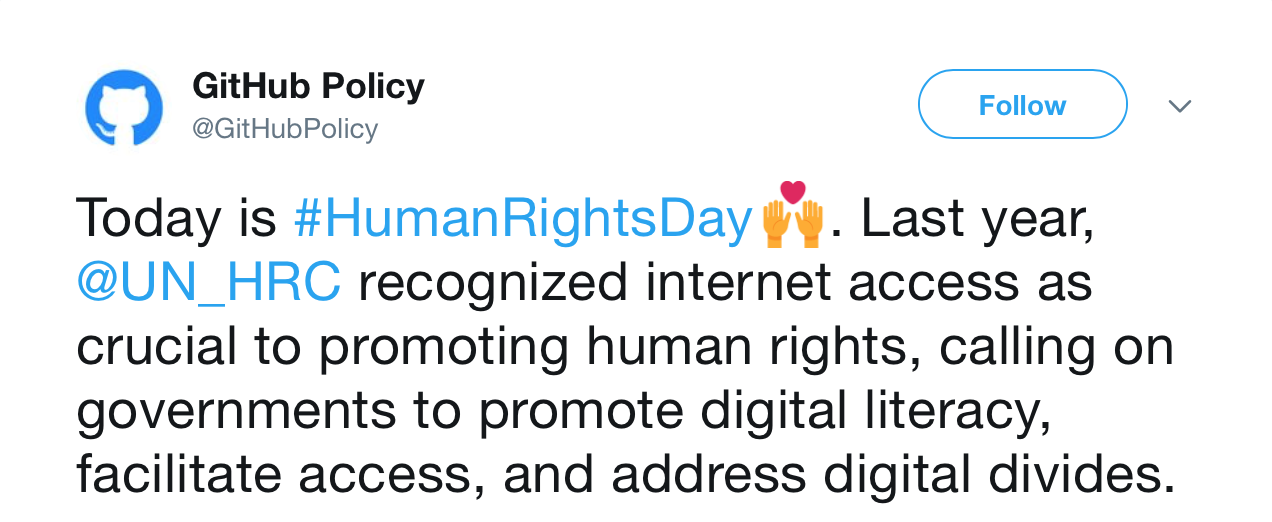Why you should join the fight for net neutrality today
Today is the second Day of Action to Save Net Neutrality this year, and there’s never been a more important time to show your support. GitHub is joining a number…

Today is the second Day of Action to Save Net Neutrality this year, and there’s never been a more important time to show your support. GitHub is joining a number of companies, digital rights groups, and nonprofits to continue the fight for net neutrality rules and the rights of internet users around the world. This coordinated effort comes just a couple of days before the Federal Communications Commission (FCC) is set to vote on Chairman Ajit Pai’s proposal that will likely end a free and open internet for all of us.
We began this week observing that just last year, the United Nation’s Human Rights Council recognized internet access as integral to promoting human rights and called on governments to promote digital literacy, facilitate access, and address digital divides.
Unfortunately, Pai’s proposal will reverse this progress—especially efforts to increase access and decrease divides—for developers and every internet user.
Why net neutrality matters
FCC Commissioner Mignon Clyburn put it best when she explained that the proposal “threatens innovation at the edge, by allowing broadband providers to charge tolls to access their customers.” While concerns may center on how this affects the sites we rely on daily for searching and streaming, these changes will likely have a much greater impact on software entrepreneurs who are rewriting the way we communicate and get work done right now. The FCC is not considering the developers and small startups that don’t have access to the resources that bigger companies have.
In addition to charging internet users extra fees, broadband providers would be able to use preferential treatment for their own content. Even if developers and startups manage to pay the fees, internet providers could limit or block those services in favor of their own—robbing internet users of newer, more innovative ones.
As EveryoneOn, a U.S. nonprofit committed to creating social and economic opportunity by getting people online, notes “Lack of access to digital opportunity is particularly harmful today because of the role that digital technology plays in everyday tasks.” Its CEO Chike Aguh goes on to explain how net neutrality will have a broader economic impact: “90 percent of people in the United States who have looked for a new job in the last two years used the internet to research jobs, and 84 percent have applied to a job online.” EveryoneOn estimates that the internet results in more than $2 million in additional lifetime earnings for individuals with access.
A U.S. vote with global impact
As the U.S. prepares for another round of net neutrality debates, governing bodies in regions like India and the European Union have come out in support of net neutrality regulations. For instance, the Telecom Regulatory Authority of India (TRAI) released its recommendations on net neutrality this past November. These recommendations stem from TRAI’s acceptance that strong principles of non-discriminatory access will promote future growth and innovation of “internet infrastructure and its applications, content, and services.”
Additionally, the European Union has continued to evangelize its position on net neutrality. The body of European Regulators for Electronic Communications Chair, Sebastien Soriano, explained in a recent speech that Europe’s position on net neutrality is established and drew a distinction between Europe and the U.S. by stating, “Even in the U.S., a pioneer country in this area, the issue remains unresolved.”
In jurisdictions that haven’t made a firm commitment to net neutrality, the change in U.S. policy could be used as justification for closed internet policy.
Make your voice heard
Net neutrality affects everyone, and we only have two more days to “Break the internet”, and let Congress know how we feel.
Call your U.S. congressperson today
If you’re not in the U.S., you can still help by spreading the word and learning about open internet policies in your country.
Written by
Related posts

From pair to peer programmer: Our vision for agentic workflows in GitHub Copilot
AI agents in GitHub Copilot don’t just assist developers but actively solve problems through multi-step reasoning and execution. Here’s what that means.

GitHub Availability Report: May 2025
In May, we experienced three incidents that resulted in degraded performance across GitHub services.

GitHub Universe 2025: Here’s what’s in store at this year’s developer wonderland
Sharpen your skills, test out new tools, and connect with people who build like you.

